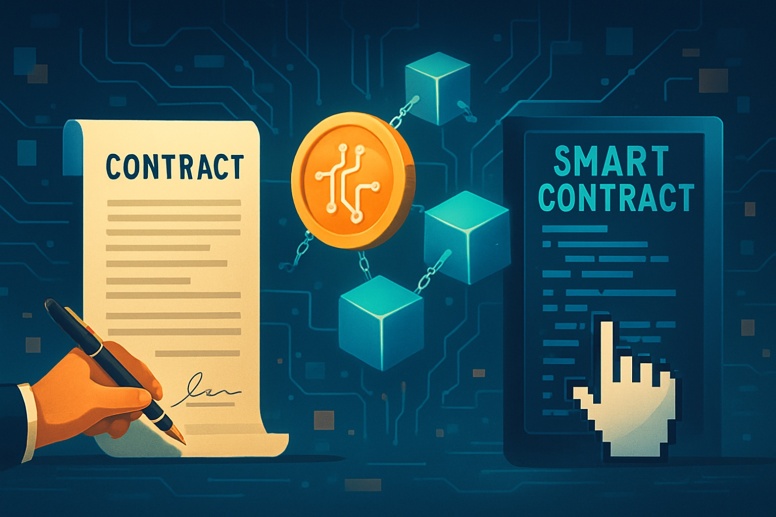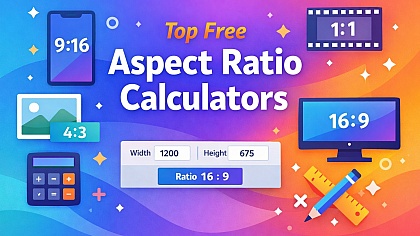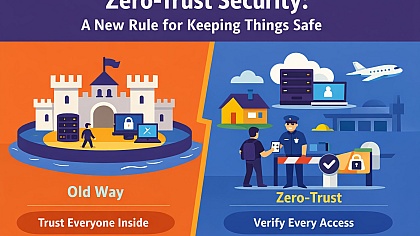
Can Smart Contracts Really Replace Traditional Agreements?
For centuries, contracts have been the backbone of trust in business. Two parties agree on terms, signatures are exchanged, and the rest relies on enforcement—whether that’s a mutual understanding or the looming presence of legal action. But as more industries flirt with decentralised technologies, that model is being challenged by something more code-driven: the smart contract.
In theory, smart contracts promise a future where paperwork is replaced by programmable logic. Agreements don’t just sit in drawers or cloud folders—they execute themselves. But is that future realistic? And more importantly, is it desirable?
Understanding the Shift From Trust to Code
Traditional contracts hinge on trust and enforceability. You trust that the other party will deliver, and if they don’t, you have recourse (court, arbitration, mediation). It’s a human system, imperfect but familiar.
Smart contracts, on the other hand, take a very different approach. Built on blockchain technology, they are self-executing agreements that trigger outcomes automatically when predefined conditions are met. That might sound futuristic, but in practice, it’s already happening—from real estate tokenisation to decentralised finance protocols.
The appeal is obvious: fewer intermediaries, faster transactions, reduced potential for dispute. With smart contract development for automated processes, businesses can streamline everything from payment flows to inventory management, removing the need to chase invoices or manually confirm milestones.
But for all their efficiency, smart contracts come with limitations. And they’re not a drop-in replacement for the complex, context-heavy documents many businesses rely on today.
Where Smart Contracts Excel
Smart contracts shine in environments that are rules-based, repetitive, and binary. If X happens, then do Y. There’s no need for negotiation or nuance, just execution.
Take a simple example: a freelance marketplace. A smart contract can hold payment in escrow and release it automatically once the client confirms that a task is complete. No back-and-forth, no payment delays, and no need for trust between strangers.
The same principle applies to supply chains. A delivery is scanned at a checkpoint, the smart contract logs it on the blockchain, and payment is triggered without delay. Or consider royalties in digital media—artists can be paid in real time as their work is streamed or downloaded, based on predefined rules embedded in a smart contract.
In all of these examples, the advantage is speed and certainty. The system is impartial. It doesn’t forget, get distracted, or hold a grudge.
But What About the Grey Areas?
Most real-world agreements, however, are not so tidy. They involve interpretation, exceptions, and judgment calls. What does “reasonable effort” mean? What happens when circumstances change? Can a contract account for intent, or just outcomes?
This is where smart contracts start to fall short. Their strength—rigid logic—becomes a weakness when ambiguity enters the picture. Once deployed, they’re difficult (though not impossible) to amend. If something goes wrong, there’s no built-in appeal process. And while traditional legal contracts can be debated and revised, a smart contract just… does what it was told to do.
That might be fine for some use cases. But in more sensitive contexts—employment agreements, long-term partnerships, or anything involving human judgment—hard-coding outcomes can feel more like a gamble than a guarantee.
The Hybrid Future: Code Plus Context
Rather than replacing traditional contracts wholesale, the more likely scenario is a hybrid one. Smart contracts will take over the mechanical aspects—payment, confirmation, timestamps—while traditional documents still handle context and contingency.
Think of it as splitting the workload: let the smart contract handle execution, while human-readable terms cover interpretation. This is already being explored in sectors like insurance and logistics, where efficiency gains are essential, but nuance still matters.
We may also see increased use of “oracles”—third-party data feeds that help smart contracts interact with real-world events. But this introduces questions about reliability, decentralisation, and how much control is truly ceded.
Smart contracts aren’t a silver bullet. They won’t make traditional agreements obsolete overnight. But they are changing the conversation—pushing us toward systems that are faster, leaner, and potentially more fair.
The challenge isn’t just technical. It’s philosophical. What do we value more—clarity or flexibility, trust or automation?
The answer, as with most things in business, will probably be a bit of both.














